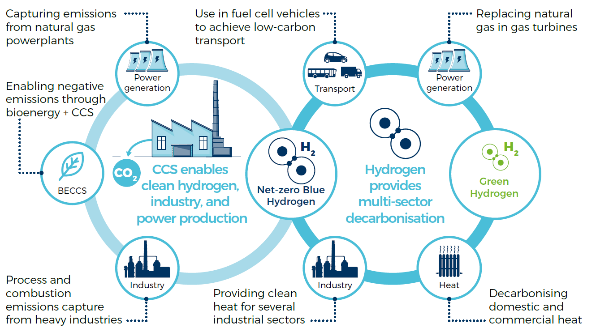New studies show the role of hydrogen and CCS in reaching net-zero targets

Four key reports have been published by Element Energy that outline the opportunity for hydrogen in the UK net-zero transition, including technical and economic perspectives.
The Hy-Impact series of studies explores the technical and economic impacts of deploying hydrogen and CCS technologies in the UK. Blue hydrogen is capable of decarbonising industry, heat, transport and power.
 The studies assess aspects from job creation to emissions reduction, and hydrogen production to its end-use, including complementing renewables in the power sector. The studies were carried out for Equinor, a long-term energy investor in the UK in a broad range of areas and also the country’s largest supplier of natural gas.
The studies assess aspects from job creation to emissions reduction, and hydrogen production to its end-use, including complementing renewables in the power sector. The studies were carried out for Equinor, a long-term energy investor in the UK in a broad range of areas and also the country’s largest supplier of natural gas.
The studies aimed to answer a number of remaining questions around hydrogen deployment in the UK and concluded that:
- Hydrogen and CCS deployment could enable over 200,000 jobs and could add £18 billion to the UK economy in 2050
- There is sufficient bioenergy to enable large-scale net-negative hydrogen production in the UK, through blending of biomethane into the reformer feedstock
- Hydrogen and CCS power technologies can cost-effectively replace planned nuclear and unabated gas power plants, while reducing electricity grid carbon intensity by 24%
- The Yorkshire and Humber region could represent an opportunity for development of an early hydrogen economy.
Plans are already developing in the UK to deploy hydrogen and CCS at scale.





